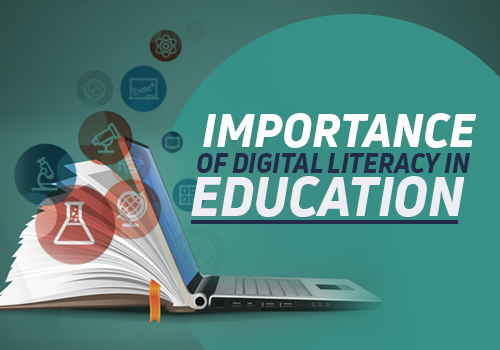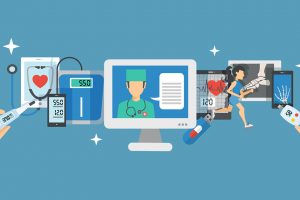Digital literacy refers to the knowledge, skills, and behaviors required to effectively use digital devices, software, applications, and online spaces. As society continues rapidly digitizing, digital literacy is becoming essential for people to access information, analyze media, communicate, learn online, and participate safely in digital environments. Here we explore why digital literacy is critical for everyone and how it can be improved.
Accessing Digital Information
The amount of information accessible online today is unprecedented in human history. However, locating, evaluating, and utilizing digital information in learning and everyday life requires new competencies. As education scholars like Mark Warschauer note, “Universal access to the Internet does not translate to universal understanding without digital literacy.” Important capabilities include:
- Effective searching – Formulating targeted queries, using advanced search tools, verifying source credibility.
- Critical evaluation – Assessing if information is accurate, reliable, and unbiased based on the source and context.
- Synthesizing data – Comparing information from multiple sources, identifying key themes and relationships between concepts.
- Applying insights – Harnessing research to inform decisions, solve problems, or create new ideas.
These empower accessing the world’s knowledge for academic and professional success.
Navigating Digital Environments
Technology interfaces and digital systems grow more sophisticated daily. However, those lacking digital fluency can struggle to navigate these ubiquitous tools. Important navigation abilities include:
- Understanding device functions and settings.
- Troubleshooting basic technical problems.
- Managing passwords and digital identities securely.
- Completing online transactions and forms accurately.
- Using cloud storage tools and two-factor authentication.
- Mastering new software interfaces and apps quickly.
Fluency prevents digital environments from becoming barriers to efficiency, productivity, and participation.
Online Communication & Collaboration
Digital channels like email, messaging, video chat, and workplace collaboration platforms have become primary communication methods. Digital literacy enables harnessing these technologies to converse, share ideas, and participate in virtual teams effectively. Key capabilities include:
- Writing emails and online messages clearly and professionally.
- Using proper etiquette and tone when communicating digitally.
- Identifying miscommunications without visual cues and resolving them.
- Collaborating across time zones and geographies through online tools.
- Avoiding misunderstandings caused by excessive brevity or reliance on slang.
Mastering digital communication nuances improves workplace connectivity and relationships.
Discerning Misinformation
Widespread digital misinformation demands heightened media literacy to identify falsities and form accurate conclusions. As philanthropy director Elyse Lightman Samuels states, “With social platforms and digital editing tools making propaganda easier, developing digital discernment is crucial for an informed society.” Key skills include:
- Fact checking claims and citing credible sources.
- Recognizing manipulated photos, videos, and misrepresented data.
- Identifying “fake news” designed to polarize versus factual reporting.
- Understanding disinformation campaigns across social media.
- Thinking independently rather than succumbing to confirmation bias.
These prevent manipulation and poor decision making stemming from digital falsehoods polluting the information ecosystem.
Protecting Privacy and Reputation
Most personal and professional interactions now occur online and leave permanent digital trails. Following security best practices protects reputations and prevents harms. Critical habits include:
- Using strong unique passwords and multi-factor authentication.
- Checking app permissions and limiting data access.
- Identifying unsafe links and phishing scams.
- Recognizing how online posts can be perceived differently than intended.
- Managing social media profiles and privacy configurations responsibly.
These measures safeguard long-term interests in the public digital domain.
Improving Digital Literacy Proficiency
While digital literacy gaps remain, stakeholders across sectors are making improvements through:
School curriculum revisions – Integrating digital skills instruction into K-12 English, technology, and information literacy courses.
Workplace training programs – Employers providing digital fluency courses for students and older staff to close skills gaps.
Public computer centers – Libraries and community hubs offering digital literacy education for all ages and backgrounds through classes and coaching.
Nonprofit programs – Organizations like the National Digital Inclusion Alliance creating initiatives to boost digital readiness for underserved groups.
Government partnerships – Agencies collaborating with schools and telecom providers to expand home broadband access enabling digital learning.
Higher education credentials – Colleges providing undergraduate minors and certificates in areas like human-computer interaction and user experience design.
Awareness campaigns – Digital Literacy Week events and social media outreach highlighting the importance of digital capabilities and online civility.
While ongoing literacy demands constant, concerted development as technology progresses, prioritizing these capabilities creates more digitally capable individuals and communities ready to leverage technology for human progress.

















